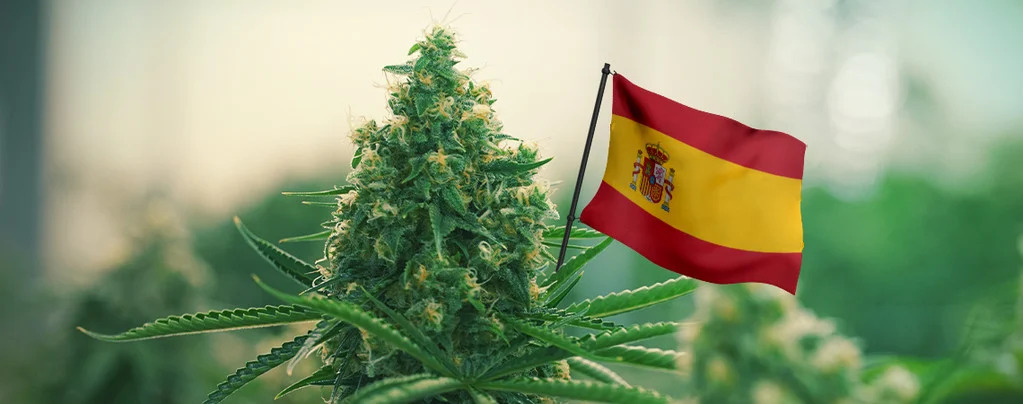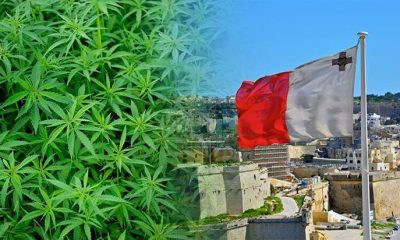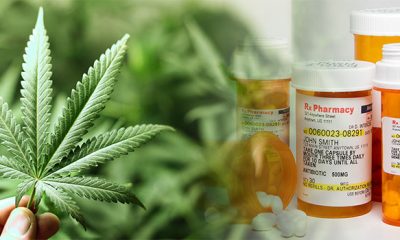Spain is the European country with the highest number of offenses against drug law, despite only ranking third in terms of consumption, which puts it in a legalization paradox. In 2020, Spain generated 276.742 reports on cannabis users, representing 43% of the European total.
For at least 25 years, Spain has lived in a kind of generalized civil disobedience regarding the cultivation and consumption of cannabis, namely through the well-known social clubs or the numerous seed banks - which could cause a false perception to those who look at this outside country.
According to data report As of 2022 from the European Monitoring Center for Drugs and Drug Addiction (EMCDDA), of all drug law offenses registered in Europe were, 43% were applied to Spanish consumers, in a total of 276.742 registrations. Of this total, the vast majority (258.379) refer to interventions for the consumption or possession of cannabis, with only 18.363 related to the sale or trafficking. Only Germany comes close to Spain in this statistic, with 227.958 records related to cannabis offenses, followed by far Turkey, with 59.716 reports.
Portugal appears in eighth place in the ranking, with 5.336 records for use and possession of cannabis and 1.464 for sale or trafficking, in a total of 6.800 offences. The data contradict the belief that, in Spain, cannabis use is less “persecuted” than in Portugal.
A Citizen Security Law (Citizen Security Law), better known in Spain as the “Gag Law”, is one of those responsible for this paradox, which has lasted for at least two decades. Despite leading the tables in the EMCDDA report in terms of offenses for use and/or possession of cannabis, Spain is not the European country where the plant is most consumed. according to Statista portal, the Czech Republic leads the ranking of cannabis consumption, , with 11,1%, followed by France, with 11%. Spain has 10,5% and Portugal appears in 17th position with 5,1% of the population admitting cannabis use.

The EMCDDA – European Observatory on Drugs and Drug Addiction – is headquartered in Lisbon
Crossing the data obtained from the EMCDDA report and the Statista table, despite the fact that the Czech Republic is the leader in terms of consumption, this country only registered 4.195 interventions in the use of cannabis in 2020, 62 times less than those imposed in 2022. Spain in the same year. Almost all countries had already implemented programs to regulate the use of cannabis for medical purposes, with the exception of Spain, where only in June XNUMX, the Spanish Congress of Deputies passed the law for the medical use of cannabis.
These data indicate that, for every 10 reports generated across Europe by the consumption (and not by trafficking) of cannabis, 4 are made in Spain, which is very close to half of the 600.802 reports created in the 17 European countries that provided data. to EMCDDA, the EU's advisory body on this subject, which is headquartered in Lisbon, Portugal.
Sanctions vary from country to country
The EMCDDA alerted Cannareporter that the term 'reporting drug law violations' encompasses different concepts, varying between countries. “Drug offenses generally refer to offenses such as drug production, trafficking and trafficking, as well as the use and possession of drugs for use. Although in some countries drug use and/or possession for use are not considered criminal offenses and give rise to administrative sanctions, reports for these have been included in the data presented here”.
Statistical units vary between countries. “Some countries register offenses, while others register persons (or suspected offenders). Among the offenses recorded, some record all the offenses reported to them, while others only record the main offenses — that is, in the case of several offenses committed by the same person, only the most serious offense (usually the one carrying the highest penalty ) is recorded”.
25 years to regulate medical cannabis
Despite Spain having for about 25 years a “friendly” policy regarding adult cannabis use, due to a “decriminalization” that would give rise to the famous Social Clubs, the medicinal use of the plant had never been legally recognized. Despite Spain being one of the most avant-garde countries when it comes to research into the use of cannabinoids for the treatment of neurological and cancerous diseases, its patients have never had the possibility of having legal and regulated access to cannabis-based medicines.

Manuel Guzmán and Carola Pérez, from the Spanish Medical Cannabis Observatory, have played a key role in regulating
Until the approval of this new law, any Spanish patient was forced to navigate through the gray areas of the law to have access to cannabis, either through the famous Social Clubs, which were originally even created for this purpose (and not exactly with “tourist ”), or taking the risk of growing their own plants, something “tolerated” by the authorities, as long as they were never publicly visible.
It took about seven long and arduous years of countless and tireless meetings between the Spanish Medical Cannabis Observatory (OECM), chaired by Carola Pérez (and also co-founded by researchers Manuel Guzmán and Cristina Sánchez, from the Complutense University of Madrid), and the various Spanish political parties, most of which were, until very recently, opposed to any initiative to regulate the medical use of cannabis.
“Sometimes we were very optimistic and other times we were pessimistic, because at some stages it seemed that there was a dead end,” Guzmán told the CBD project.
Pathologies, pharmacies and some doctors outside the new law
Although it is estimated that around 300 Spanish patients may benefit from the new law, similarly to Portugal, only a few indications were defined for obtaining a prescription for cannabis. Pathologies such as fibromyalgia, inflammatory bowel disease, cachexia related to cancer or glaucoma were left out, which forces patients who suffer from them to continue to have to resort to the illicit market, to Social Clubs or else to embark on self -cultivation to obtain your medicines.
“Everything can be improved”, recognizes Guzmán. "Of course we would have liked other nominations to have been included... But if I had been told two or three years ago what we have now, I would have said it's pretty good."
There are still doubts about which and how Spanish patients will be able to legally acquire their medicines, as it all depends on how the Spanish Health Agency, the entity equivalent to Infarmed in Portugal, interprets the guidelines of the approved project. The deadline to do so is until the end of the year 2022.
The new guidelines of the approved draft law determine that cannabis-based preparations, including formulations with different THC:CBD ratios prepared locally in specific pharmacies for each patient, will be prescribed by specialist doctors and distributed through hospital pharmacies, although Guzmán and the their colleagues at the Observatory hope that this will also extend to General Practitioners and community pharmacies.
Another doubt is whether or not cannabis flowers, which are not properly mentioned in the project presented, will be included in the new program for accessing cannabis for medical purposes, which is raising some concerns among patients about how to access them by legal avenues, especially those who already use them to manage pain and nausea.
Licensed companies will only export
Apart from the fact that whether a medical program on cannabis use can actually be launched in just six months, Guzmán believes that its success will depend on the money and resources allocated to it, as it will be necessary to educate and train doctors in to cannabis therapies. The products themselves must be readily available to prescribe and consume. “If there is a regulation but there are no products or there are no doctors, then it is useless,” says Guzmán. Which leads to another also important factor, which is the cost that these prescriptions and medicines will have for patients. Guzmán hopes that most of the cost will end up being covered by the Spanish social security system. However, it will be up to the Spanish Health Agency to ultimately decide where the financial burden will fall.
“We (OECM) will have to be very attentive if the main points are fulfilled”, says Guzmán. "We still have a role to play in the process, but we have to continue to watch and be as active as possible to have the best and most generous program."
The Spanish government has also authorized and issued licenses to several companies for the cultivation of “medical cannabis”, but restricted to export to other countries, such as Germany, the United Kingdom and Poland.
__________________________________________________________
* Article corrected and increased on 19-09-2022, after statements by the EMCDDA. The terms “sanction” or “fines” were replaced by “registration” or “report” by “drug law offense”, since often only “administrative sanctions” are recorded without any penalty or fine applied.












































